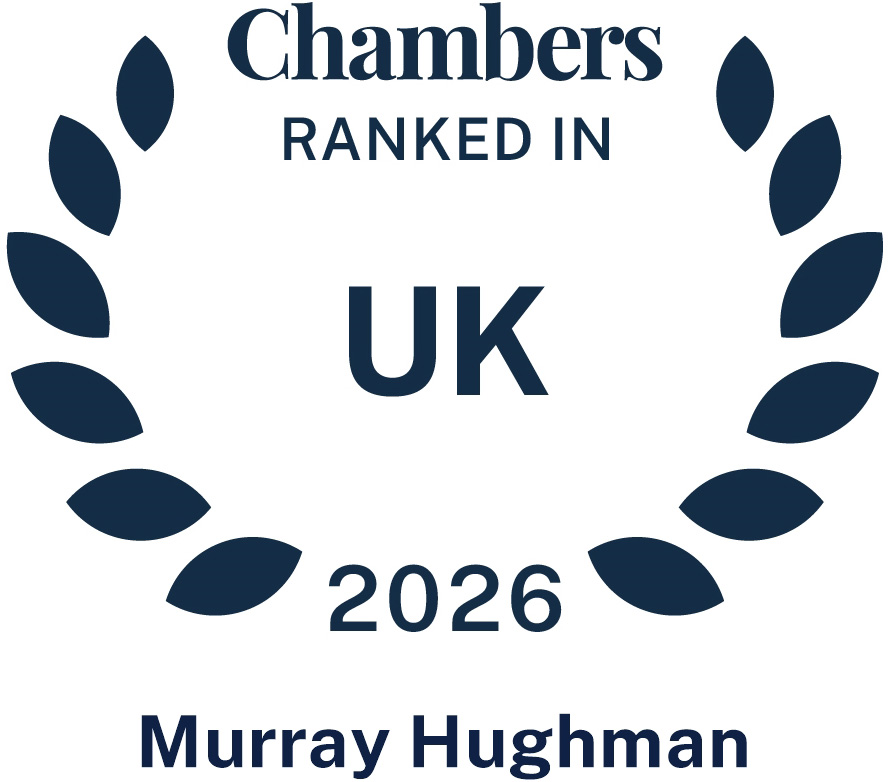
The opening chapter of Aleksandr Solzhenitsyn’s ‘The Gulag Archipelago’ provides some visceral passages about the shock and horror felt by the blameless individual following arrest: “Arrest, is an instantaneous, shattering thrust, expulsion, somersault from one state into another… the majority sit quietly and dare to hope. Since you aren’t guilty, then how can they arrest you? It’s a mistake! They are already dragging you along by the collar, and you still keep on exclaiming to yourself: ‘It’s a mistake! They’ll set things straight…. they’ll set things right!’.
Mercifully, we do not live under a Stalinist regime in this country, where everyone has the right to defend themselves, should they be wrongfully accused of a crime. For many however that does not make the reality of an investigation any less stressful. Happily, much of the time, investigators in any given case will indeed investigate fairly and objectively and set things right when appropriate. However, as resources continue to become ever more stretched, and time is short, investigators may find it increasingly difficult to identify and pursue every line of inquiry that not only point towards, but also away from a suspect’s guilt. Unconscious bias, pressure to get results or simply failing to appreciate or to even be aware of the significance of strands of evidence, can lead to charges being brought when perhaps they should not be, leaving distant and drawn-out Court proceedings as the only available remedy.
In this article, Andy Rootsey discusses the pre-charge engagement protocols and considers some recent cases where charges and court proceedings have been avoided, as a direct result of enterprising, pragmatic and pro-active pre-charge engagement between the lawyers at Murray Hughman and with investigators, to set things straight.
It is a sad reality that currently Police and other prosecuting agencies investigations can often last for months and sometimes even years, leaving those accused of crimes facing excruciating uncertainty as their future hangs by a thread. Those under investigation often feel that they must stand idly and passively by, whilst an investigation progresses, hoping that investigators will seek out and obtain the evidence to assist in bringing matters to a close.
Fortunately, protocols and provisions are in place in the U.K. that encourage engagement between the defence and investigators. Instructing the specialist and skilful lawyers at Murray Hughman, who can be dynamic in their approach, can often alter the trajectory of an investigation, leading investigators to evidence that can result in the case being closed, without ever seeing the inside of a Court room.
The legal framework
Pre charge engagement describes the relationship between defence lawyers and investigators. The Provisions are contained within Annex B of the Attorney Generals guidelines on Disclosure 2024.
Pre-charge engagement refers to voluntary engagement between the parties to an investigation after the first investigatory interview (often with Police but can also be with other investigatory bodies) and before any suspect has been formally charged.
The Protocols provide an opportunity for suspects to provide investigators with material or further lines of inquiry which can include access to digital material, identification of potential witnesses and the provision of other evidence that investigators may have been otherwise unaware of, that point away from a suspect’s guilt. Pre-charge engagement can help inform a prosecutor’s charging decision and avoid a case being charged that would otherwise go to trial.
To engage or not engage – that is the question
It is important to recognise that pre-charge engagement will not always be appropriate in every case and careful consideration is always required on a case-by-case basis as to what, if any, action to take. There will be many cases when it is inappropriate and potentially detrimental to a client to undertake such a course of action. When, however the protocols are applied expertly, in a case that warrants it, timely intervention from the defence can have a real impact in the direction a case proceeds in and can often make the difference between facing Court proceedings or not, particularly when coupled with extensive written representations from the defence applying the evidential test as to whether there remains a realistic prospect of a conviction or that a prosecution is no longer in the public interest.
Not a one size fits all approach
As we will see, there is not a one size fits all approach, and different methods and applications of the protocols may be undertaken as each case demands but always with the same overall objective of avoiding Court proceedings.
Whilst automatic success cannot be guaranteed and each individual case is different, the scales can be tipped in the favour of our clients by taking decisive action to avoid court proceedings.
When clear exculpatory defence evidence is available, the decision to provide and present it to Police or investigators will usually be a straightforward and clearcut one.
In the majority of cases however, the available defence evidence or lines of inquiry may not so neatly fall into such a clear and simple category. Many cases require a multifaceted approach obtaining a variety of different forms of evidence. When obtained properly, and presented clearly, the evidence produced, and representations made, can often be compelling and persuasive.
The following cases provide a few examples of the types of approaches that can be undertaken in relation to a variety of different investigations, ranging from the provision of simple pieces of evidence to a full-scale defence investigation obtaining, digital, social media, telephonic evidence and witness statements together with comprehensive written representations.
Examples
Rape – No Further Action – No Charges brought
In allegations of a sexual nature, the case will very often centre around one person’s word against another and in the absence of defence evidence to the contrary, prosecutors can reach the conclusion that the evidence can only be properly tested in a Trial situation. Careful and pro-active analysis of all available defence evidence is therefore essential at the earliest stage possible to avoid charge and subsequent Court proceedings.
In this example, Andy was instructed to act for his client who had previously been interviewed by Police in relation to an allegation of rape against his former partner. He had been represented by a different firm at the time of his interview and felt he had not done his case justice and received the incorrect advice in not answering questions.
Our client provided Andy with voluminous digital material in support of his defence, including the provision of text messages, WhatsApp messaging, social media, audio and video evidence.
After meticulous, painstaking and thorough examination of all the material and in light of taking further detailed instructions, it was clear that serious doubt was placed on the credibility of the allegation and the strength of the case against him and strong evidence pointing away from his guilt rather than towards it was available.
As a result of the careful and pro-active analysis of all available evidence it was apparent that strong defence evidence was available, it was therefore in the clients’ best interests to provide this to police at the earliest stage possible to avoid charge and subsequent Court proceedings.
The evidence was then provided to Police and by investigators having the opportunity to carefully consider and review the evidence in context and with explanation, together with representations and additional witness details, The Crown Prosecution Service and Police reached a similar conclusion that there was not a realistic prospect of a conviction based upon an objective assessment of the evidence. As a result, the decision was therefore made to take No Further Action against our client and no charges were brought.
Without Andy’s input our client may well have been charged, faced years of uncertainty and anxiety awaiting trial.
Historic Sexual abuse – No Further Action – No Charges brought
Andy was instructed in a sensitive and complex case by a client who was alleged to have committed historic offences of sexual assault against a family member.
Using the pre-charge engagement protocols, Andy diligently and comprehensively built the defence case, taking a multi-faceted approach whilst the matter was still at the investigation stage. Andy was then able to provide the extensive defence evidence obtained to Police.
As part of an all-encompassing and thorough defence investigation, Andy had obtained detailed witness statements from a large number of close family members casting considerable doubt upon the veracity of the claims, including the reliability of the complainant, the motivations of the complainant, and the lack of opportunity to commit the alleged offences. Andy was also able to utilise psychiatric records and medical evidence, suggesting his client was incapable of behaving in the manner described at the time of the allegations, historical correspondence between the complainant and our client as well as historical photographs of the scene, all of which significantly cast serious doubts upon the complainants account.
At the conclusion of the investigation, and as a result of the evidence obtained and produced by the defence, a review took place and it was decided that there was not a realistic prospect of a conviction, and No Further Action was taken against our client.
The case illustrates the importance of the defence being pro-active during the investigation. Whilst Andy had attended at the Police interview with his client providing a lengthy and detailed prepared statement to Police, the complexity of the case required significant further input thereafter from the defence to provide Police with additional evidence that pointed away from our client’s guilt, which otherwise may not have been obtained at all by Police and would simply not therefore have been considered when deciding whether to bring charges or not.
Causing Grievous Bodily Harm with intent – No Further Action – No Charges brought –
On this occasion, Andy was instructed on behalf of his client who was accused of causing Grievous Bodily Harm with intent. The evidence against his client, at first sight, appeared on the face of it to be strong. Police were in possession of mobile phone footage of a violent exchange between two groups of males on a street. Andy’s client was seen on the footage to kick a male in the head as he was lying prone on the floor. The blow knocked the male unconscious.
A defence of self-defence was put forward by his client that the force used was reasonable in all the circumstances. Andy was able to obtain evidence and witness details that completely altered the trajectory of the investigation and provide strong evidence to support the client’s contention that the force used by him was necessary, reasonable and proportionate and was not in fact excessive in the circumstances that he found himself in.
Witnesses were identified who were able to explain the clients’ reasons for going to the scene in the first place (not to engage in violent behaviour) Witnesses were identified that could confirm the opposing group had been seen in possession of lethal weapons and that our client was keenly aware at the time they were in possession of those weapons and was in genuine fear he would be attacked with them and indeed the group had attacked our client first. Medical evidence was also obtained with regards to the life changing injuries sustained by our client after kicking the male, further supporting his reasonable belief that he was, at the point of kicking the male, in a life-or-death situation and that significant force was required by him to defend himself from serious injury, which he nonetheless did later sustain despite his actions.
As a result of the pro-active defence investigation and deployment of this and other evidence, no further action was taken against our client and the matter was closed when otherwise charges may have appeared likely.
Fraud – No Further Action – No charges brought
Andy’s client was a small business owner whom, was investigated by Trading Standards in relation to allegations of fraud. Andy had obtained significant evidence from his client in support of his defence of his business practices and evidence that the complainant had refused to make payment for the work completed. Armed with this information, Andy was able to instigate a dialogue with the investigating officers and was able to negotiate with them and agree a partial settlement of his client’s invoice. Following on from those discussions and the provision of information, Officers were persuaded that in the circumstances, a prosecution was not required, and the investigation could be closed. Whilst this turned out to be a straightforward matter to resolve via pragmatic and direct engagement, taking an alternative course of action was likely to result in the matter lingering on for many months and the potential for Court proceedings could not be ruled out.
Fraud, Consumer Protection Offences – No Further Action – No Charges brought
Andy was instructed on behalf of Company Director who faced an investigation by Trading Standards into claims that his company had fraudulently overcharged two separate customers for building work in excess of £30k that was said to be unnecessary.
Andy was able to obtain and deploy supporting evidence of cancelation rights, the necessity for the work itself and the reasonable overall cost of the building work via documentation, emails and photographic evidence.
Andy then able to make strong lengthy written representations to Trading Standards together with the provision of evidence, that resulted in the investigation being closed, and no further action.
Again, in this case – an early positive resolution was obtained by pro-actively building the defence case and engaging with investigators at an early point in the investigation leading them to evidence that pointed away from our client’s guilt rather than toward it and rightly coming to the conclusion that there was no reasonable prospect of a conviction.
Final thoughts
As shown via a few of the examples described above, the experienced team at Murray Hughman are able to a take a fluid, proactive and purposeful approach in each individual case in respect of a variety of types of investigation and allegations. We are able to work with our clients, considering a plethora of different types of evidence, including, digital, social media, audio, video or witness testimony evidence to assist in bringing cases to an early and favourable end.
Often, following careful and pro-active analysis and assessment of all available evidence, we will also seek to make powerful written representations to the Police, investigators and prosecutors, that there is not a realistic prospect of a conviction or that it is not in the public interest to bring a prosecution.
Early defence engagement can and often does, lead to ‘setting things right’ thereby avoiding a substantial period of uncertainty and anxiety or having to endure a Court Trial.





